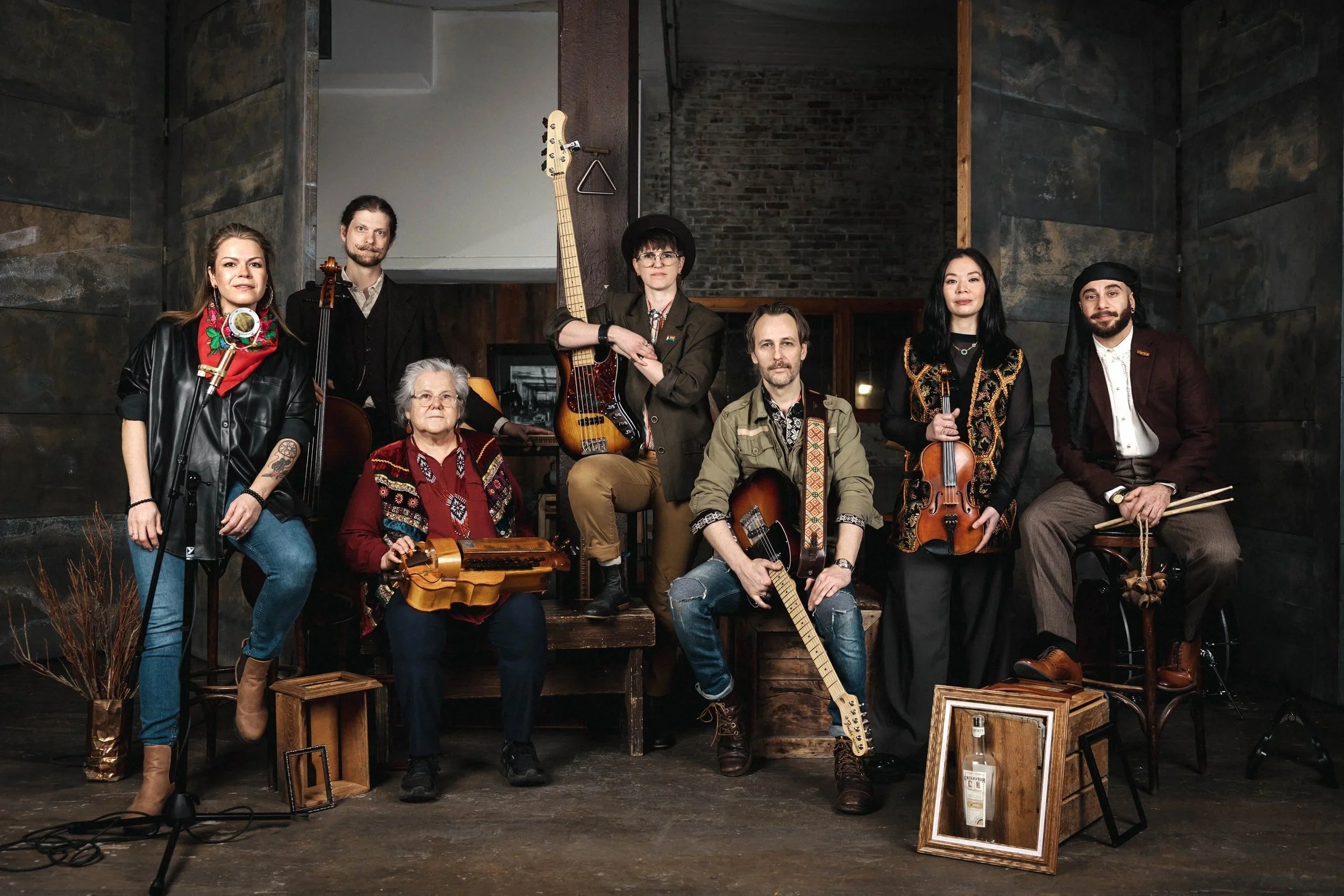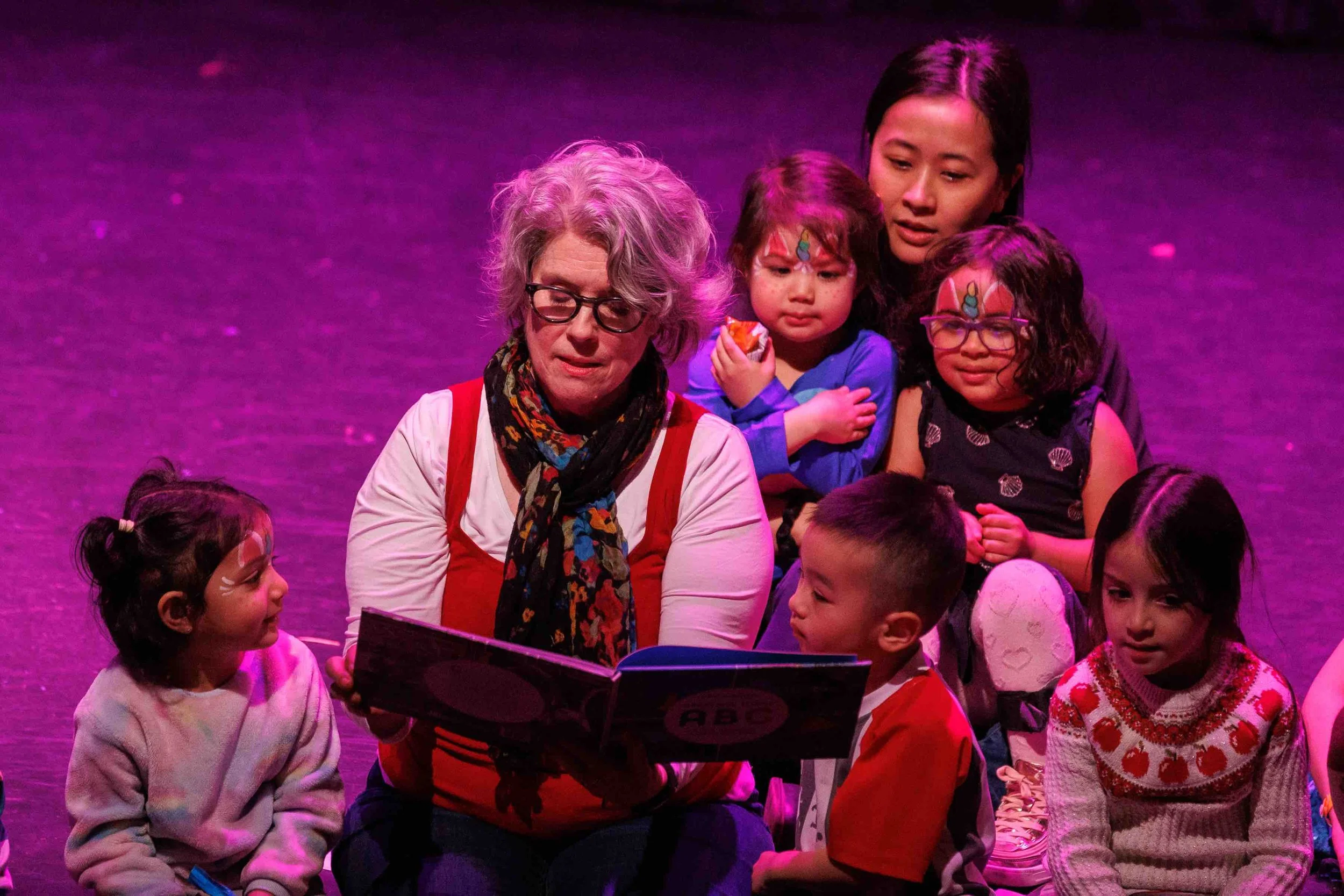In You used to call me Marie, playwright-actor Tai Amy Grauman digs into Métis women’s stories
The artist and politician draws on her own Callihoo ancestors, and fills new play with fiddle and dance
Aren Okemaysim as Napew and Tai Amy Grauman in You Used to Call Me Marie. Photo by Benjamin Laird
The Cultch, Savage Society, and NAC Indigenous Theatre present You used to call me Marie at the York Theatre from April 18 to April 28, during the seventh annual Femme Festival
THEATRE-GOERS WILL witness epic love stories spanning decades, with Alberta Métis women’s stories at the forefront, in You used to call me Marie.
Through the new play’s eight intertwined storylines, Iskwewo and Napew, two star people, come back to their earthly bodies throughout history as the Métis nation emerges across Alberta. From creation, the fur trade, the Northwest Resistance, to present day on Treaty 6, they come to remember each other time and again.
When writing You used to call me Marie, Tai Amy Grauman says she wanted to showcase how Métis women have kept the nation going throughout history, despite men being the ones in the public eye.
“Our [Métis] history is so dense, and there's so many parts where the stories of the women are missing,” says Grauman. “This play fills in those gaps.”
Grauman is Métis Cree with ties to Haudenosaunee voyageurs from Ardrossan Alberta; she’s a Callihoo and a Beauregard, and her family comes from a community in Alberta formerly known as St. Paul des Metis.
“Métis narratives are predominantly centred around the men—and we have great men, like Louis Riel and Gabriel Dumont, but my intention with this play was always to centre women,” says Grauman, who also stars in the play.
When researching historical accounts and Alberta Métis women’s stories to draw on, she found there was little available. So the stories in her works are her own, coming from her people, the Callihoo women before her, and her place in the world. “All the stories in the play had to happen for me to be born,” she explains. “I am from all of them.”
As for Marie, she represents Grauman’s fourth great-grandmother and the many Maries in her lineage.
“You look at my [geneology] and everyone’s name is Marie,” she says. “She was an incredibly important person and there were generations of women named after her.”
Many characters in the play are, comically, named Marie, Grauman says.
“In the play her name changes over time, so You used to call me Marie is about a return to who we were, to Marie, and looking back to all the people who had that name,” the playwright says.
As the stories unfold, The York will reverberate with Métis fiddling, accompanied by dance and costumes, all evolving as the characters move through the decades.
“We're incredibly musical people,” she says. “There's rarely a gathering where there isn't song and dance—it just doesn't happen. Our fiddle player is busy.”
While Grauman wrote You used to call me Marie about seven years ago and is now a leader within Alberta’s Métis government, she says all her work has been focused on bringing Métis women’s stories to the forefront. Grauman was elected the Women’s Representative, and Secretary of Advancement of Women & Girls within the Otipemisiawk Métis Government, on September 15.
“I think when you’re someone who’s been given a platform, [what’s important] is really taking the time to visit with people and listen,” she says.
Now a politician, she says she sees a common thread between her new position and her artistic work—including her two others shows, Wiwimaw and Marie’s love letters at Lii Taab.
“Both are really deeply rooted in stories, listening to women—like really listening to women, having tea, visiting—and building relationships,” she explains. “The thing I hear from Métis women in Alberta the most is that they don't feel heard, they don't feel like their stories are important.”
Grauman recently completed her Master of Fine Arts, and was the first Indigenous woman to complete an MFA in drama at the University of Alberta. Her thesis research explored Métis storytelling methods, Métis women’s love stories, and an expanded understanding of love.
“I often feel like our stories are told through a deficit lens,” she says, “and if there's something that I have in my life, it's a hell of a lot of love.”
She says it’s not just about “the guy” or romantic relationships: “Some of the most profound love story stories in my life are with my Aunties. They’re not with men. Not at all. They’re with all the amazing women flying out here and staying in my tiny Airbnb to see my show. That is love.”
Last summer Savage Society toured You used to call me Marie through rural Métis communities across Alberta and Saskatchewan. “The play has gone home to the people in the place where the stories come from,” Grauman reflects.
After its stint in Vancouver this Spring, Ottawa audiences will be able to catch the show at the National Arts Centre. ![]()













